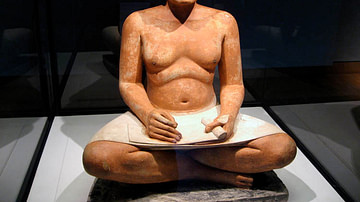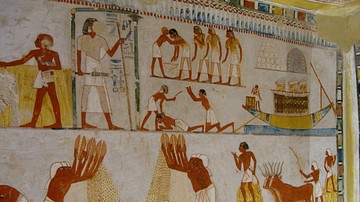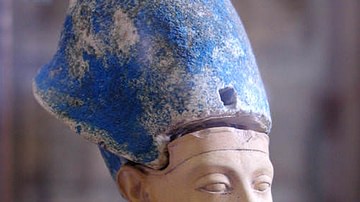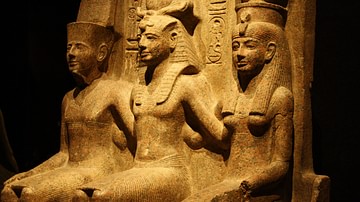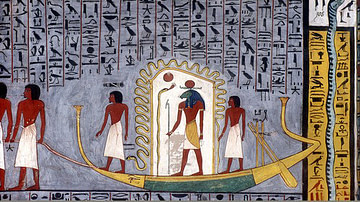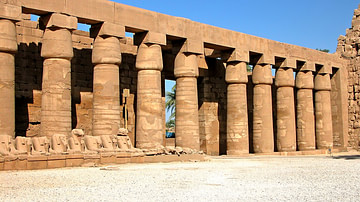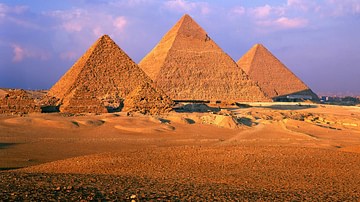Government and religion in ancient Egypt were fully integrated beginning with the First Dynasty of Egypt (c. 3150 to c. 2890 BCE). The king was understood as a representative of a god, the specific deity sometimes changing with different rulers, and was responsible for maintaining harmony in the land in accordance with the will of the gods.
The government, then, was a theocratic monarchy in which the king (only known as "pharaoh" beginning in the New Kingdom, 1570-1069 BCE) served as a mediator between the gods and their people. State-sponsored festivals in ancient Egypt as well as ancient Egyptian architecture and social structure were all influenced by religious belief. As the Egyptians believed their land was a gift from the gods, the king was expected to act as a role model in caring for it, inspiring his people to do the same.
